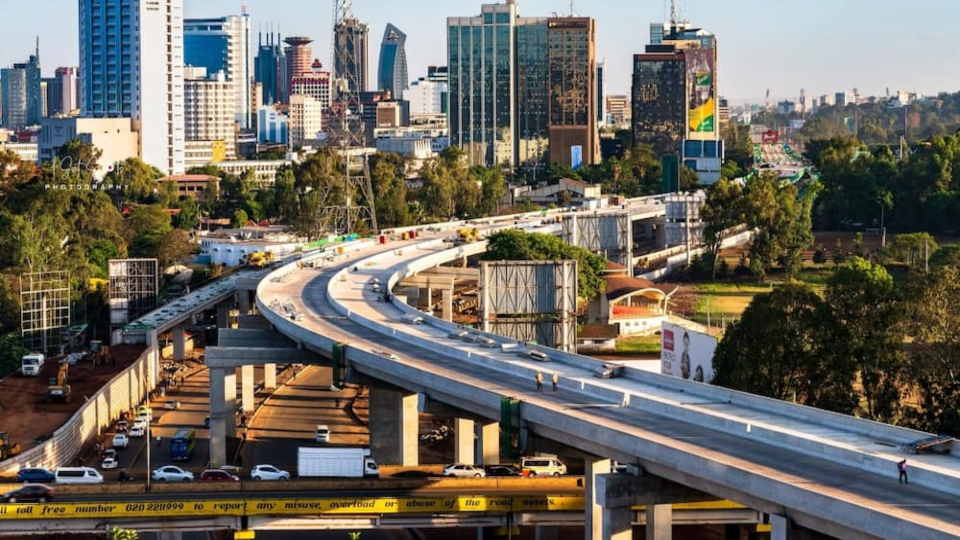Government Proposes National Tolling Policy to Fund Road Development
The Kenyan government has put forward a new proposal for a national tolling policy aimed at funding road development through a user pay charges system. The initiative, presented to Parliament, seeks to address budget shortfalls and establish sustainable infrastructure financing, prioritizing major highways for tolling to ensure revenue is channeled into maintenance and development.
Transport Cabinet Secretary Davis Chirchir, addressing the National Assembly's Departmental Committee on Transport and Infrastructure, outlined the policy's objectives. The policy aims to optimize revenue from toll roads using advanced tolling technologies and modern highway maintenance systems. It will guide the selection and funding of road projects, provide a stable revenue stream for development and maintenance, attract private sector investment through Public-Private Partnerships (PPPs), promote good governance in toll operations, and support environmental sustainability by reducing congestion and carbon emissions.
Chirchir highlighted the financial constraints driving the policy, noting a significant deficit in road infrastructure financing. "The Government seeks to prioritize development, maintenance, and rehabilitation of road infrastructure as envisioned in the Bottom-Up Economic Transformation Agenda (BETA) and Vision 2030. However, due to budgetary and financial constraints, there exists a significant deficit in road infrastructure financing, which necessitates the adoption of innovative mechanisms to raise additional funds to mitigate this funding gap," he told the committee.
The committee, chaired by Ndia MP George Kariuki, emphasized the need for toll-free alternative routes to ensure Kenyans have a choice, acknowledging that some areas lack viable alternative roads, raising concerns about inclusivity and access. While supporting PPPs for accelerated development, the MPs stressed the importance of transparency in contract terms to protect public interest, particularly regarding toll pricing and maintenance standards. "There is a need for integration of the public's feedback into the ministry's final policy, with a firm focus on affordability, access, equity, and transparency for ensuring the tolling system serves the broader public interest," the committee stated.
A public participation exercise revealed strong public demand for accountability and transparency in managing toll revenues, the tolling system adopted, and the procurement of toll operators. Kenyans also called for exemptions from toll payments for persons with disabilities, medical utility vehicles, and school buses. Additional requests included shortening the policy review period from 10 years to five, establishing a toll-sharing framework between national and county governments, increasing stakeholder engagement in setting toll rates, and considering discounts and toll-free days.
Under the proposed policy, newly built or improved roads, including those with additional lanes, upgraded safety features, and enhanced driving conditions, will be subject to tolling. Revenue from tolls will fund major projects such as the Rironi-Nakuru-Mau Summit Highway and the Nairobi-Mombasa Expressway, both structured as PPPs where private investors finance, build, and operate the roads in exchange for toll income. Currently, the Nairobi Expressway is the only operational tolled road, but the policy aims to expand this system to other roads meeting specific criteria, such as having at least 5,000 vehicles daily and significant freight movement.
The policy builds on earlier frameworks, such as the Integrated National Transport Policy (2012) and the National Surface Transport Funding Policy (2016-2025), which proposed sustainable funding initiatives, including raising the fuel levy, introducing tolls, applying the user pays principle, taxing insurance premiums, and supplementing funds from the Exchequer to bridge the financing gap. A multi-agency technical working group, appointed in April 2024, drafted the Road Tolling Policy, which is progressing toward parliamentary approval through a Sessional Paper. Chirchir noted that the policy remains under review and may be amended based on further parliamentary and Cabinet engagements, urging the committee to provide input and support for necessary legal amendments.
The proposed tolling policy is part of a broader strategy to ensure sustainable road infrastructure financing, addressing the challenges of maintaining and expanding Kenya's road network amidst declining revenues from traditional sources like fuel taxes. As the policy moves toward implementation, public participation and transparency will be critical to balancing affordability, equity, and infrastructure development needs.


